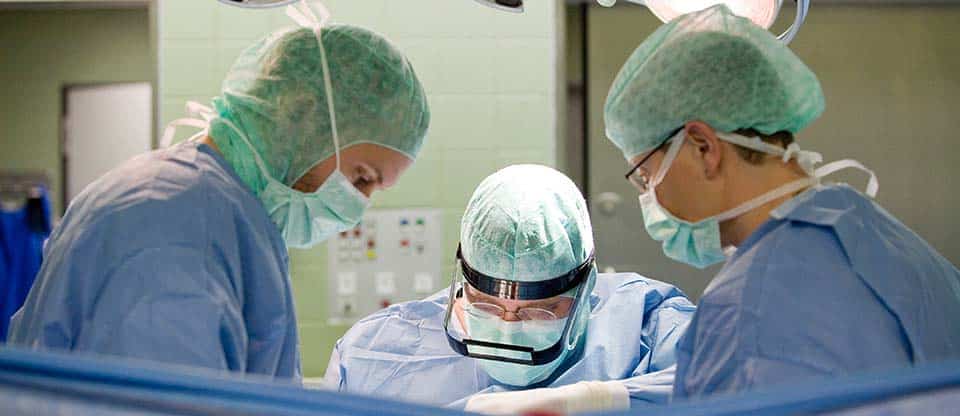This intervention is especially decisive if there is still a desire to have children, if the patient still had a menstrual cycle before the operation. In addition, with the loss of ovarian hormones, a woman has an early menopause. The result is typical menopausal phenomena such as hot flashes, bouts of sweating, palpitations, decreased bone density (osteoporosis) and dry and damaged mucous membranes. Sleep disturbances, depressive disorders and concentration problems can also be a consequence. As a result of therapy, in very rare cases, there may be a violation of the emptying of the bladder. However, this only happens when a very extensive removal of the ligamentous apparatus of the uterus is performed, which only happens with very large tumors. In rare cases, this can lead to shortening and / or narrowing of the vagina, as well as scarring and adhesions in the abdominal cavity. The consequence of this can be pain in the abdomen and back, as well as pain during sexual intercourse.
Rarely, advanced cancer also requires the removal of nearby organs, such as parts of the bladder, rectum, and vagina (major pelvic surgery).
No uterus
Removal of the uterus, purely by physical examination, does not limit a woman's sexual experience. Even if the vagina shortens somewhat, the areas important for sexual sensation (the clitoris, labia, and vaginal opening) are able to function exactly the same as before. The ability to get an orgasm is preserved.
Premature onset of menopause
If the patient had menstruation before the intervention, then after the removal or irradiation of the ovaries in the process of cancer treatment, she becomes postmenopausal.
The absence of ovarian hormones, first of all, makes hot flashes and vaginal dryness noticeable. Also, sleep disturbance, a tendency to bouts of sweating, mood swings and weight gain are typical manifestations of menopause. The result of a lack of estrogen in the future is the leaching of calcium from the bones and the deposition of calcium on the walls of the vessels of the heart. According to the severity of complaints in different women differ from each other.
Damage to the tissues of the vagina by radiation
The mucous membrane of the vagina often suffers from irradiation of the pelvic area. In the area of irradiation, the skin turns red, as with a sunburn. As a result, the vagina can be very sensitive to touch for several weeks after exposure. Since the surface of the vaginal walls is easily damaged, light bleeding may occur during or after intercourse.
As soon as the radiation-related irritation of the vaginal mucosa ends, the process of formation of scar tissue begins. In this regard, the vagina over time can narrow so much that it becomes impossible to have sexual intercourse. By regularly stretching the vagina, for example by maintaining sexual intercourse or alternatively by using a dilator, this phenomenon can be prevented or at least reduced. A dilator is a cylinder or tube that is inserted into the vagina to gradually stretch it. Dilators come in different sizes, so the vagina can be expanded step by step. With such a problem, it is important to start these measures as early as possible in order to prevent the process of cicatricial changes in time.
Bladder emptying disorder
Some women experience urinary problems after uterine surgery and/or radiation. The problem is that a small amount of urine comes out uncontrollably, because during the treatment, especially radiation, the muscles of the bladder can be involved. The fear of involuntarily passing urine can be very disturbing. The doctor prescribes therapeutic exercises with targeted exercises, which the patient can later perform on her own. In addition, the doctor may prescribe medications that reduce the increased urge to urinate. Problems associated with emptying the bladder, as a rule, do not appear. They can be only in very rare cases and only in advanced stages, when the nerves of the bladder can be affected during the removal of the ligamentous apparatus of the uterus.
Head of the Center for Operative Gynecology
Head of the Regional Center for Pelvic Floor Surgery
Video
Request appointment
Useful links
















